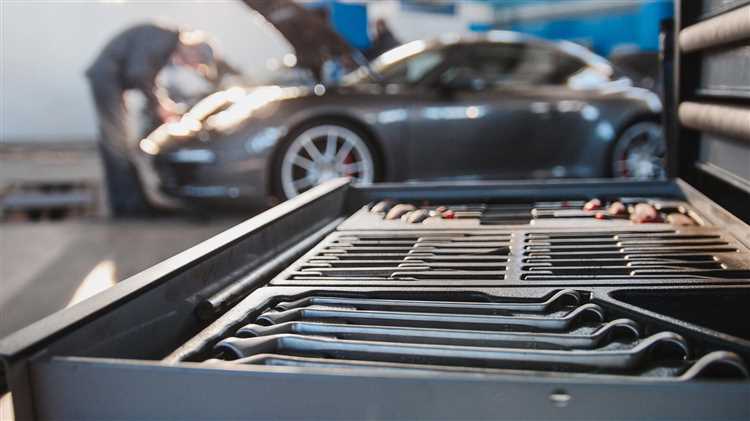
The VW Corrado is a beloved classic known for its sporty design and performance. However, like any vehicle, it is not without its share of engine issues. This guide aims to address some of the most prevalent problems owners face with the Corrado’s engine, providing valuable insights and repair solutions to keep your car running smoothly.
Engine troubles in the Corrado can manifest in various forms, from minor inconveniences to major malfunctions. Understanding these issues is crucial for any owner looking to maintain their vehicle. In this article, we will delve into specific symptoms, typical causes, and effective fixes, ensuring that you are well-equipped to handle engine problems as they arise.
By familiarizing yourself with these common engine issues and their corresponding repair methods, you can extend the lifespan of your VW Corrado and enhance your driving experience. Whether you’re a seasoned mechanic or a novice enthusiast, this guide will serve as a useful resource for navigating the challenges of Corrado ownership.
Identifying Overheating Problems in VW Corrado Engines
Overheating issues in VW Corrado engines can lead to significant damage if not addressed promptly. Identifying these problems early is crucial for maintaining the performance and longevity of the engine. This guide outlines key indicators of overheating and the potential causes behind them.
One of the first signs of overheating is the temperature gauge in the dashboard showing unusually high readings. If the needle approaches the red zone, it is essential to take immediate action. Another common symptom is steam or smoke emanating from the engine bay, which indicates excessive heat. Additionally, you may notice a loss of engine power or a strange smell, often associated with overheated coolant.
Common problems that lead to overheating include a malfunctioning thermostat, which may prevent coolant from circulating effectively. A radiator that is clogged or damaged can also hinder the cooling process. Furthermore, low coolant levels due to leaks or evaporation can lead to insufficient cooling.
To diagnose overheating, start by checking the coolant level and inspecting for leaks around hoses and the radiator. Ensure that the thermostat is functioning properly and that there are no obstructions in the radiator. If the fans are not operating, it can significantly impact cooling efficiency. Regular maintenance and timely repairs are crucial in preventing these overheating problems in VW Corrado engines.
Diagnosing Oil Leaks: Common Sources and Solutions
Oil leaks in the VW Corrado can lead to significant engine problems if not addressed promptly. Identifying the source of the leak is essential for effective repair. Below are the common sources of oil leaks and their solutions.
One of the most frequent problems is the failure of the valve cover gasket. Over time, this gasket can become brittle and lose its sealing capabilities. To repair, remove the valve cover, clean the mating surfaces, and install a new gasket to restore a proper seal.
The oil pan gasket is another common culprit. It can degrade and allow oil to seep out. To fix this issue, the oil pan needs to be removed, and the old gasket replaced. Make sure to clean the surfaces thoroughly before installation to ensure a tight seal.
Additionally, pay attention to the oil filter and drain plug. A loose or damaged oil filter can lead to leaks that are often mistaken for a more serious problem. Tightening or replacing the oil filter can solve this issue quickly. Similarly, ensure the drain plug is correctly torqued and the washer is in good condition.
Oil leaks can also originate from worn engine seals, particularly those around the crankshaft and camshaft. These seals can deteriorate over time and need replacement for effective prevention of leaks. The repair involves accessing these components, typically requiring significant disassembly, so it’s advisable to consult a professional if unsure.
In conclusion, diagnosing oil leaks in your VW Corrado requires careful inspection of common sources. Each problem has specific repair solutions, and addressing them promptly will help maintain the health of your engine. For further guidance, refer to detailed service manuals or seek assistance from a qualified mechanic.
Troubleshooting Rough Idling: Causes and Fixes

Rough idling is a common problem experienced by VW Corrado owners, which can be attributed to various engine issues. Identifying the root cause is crucial to implementing the correct fixes. This guide outlines potential problems associated with rough idling, along with their respective solutions.
| Cause | Description | Fix |
|---|---|---|
| Vacuum Leaks | Unexpected air entering the engine can disrupt the air-fuel mixture, leading to unstable idling. | Inspect hoses and connections for cracks or disconnects. Replace damaged hoses and ensure all connections are secure. |
| Dirty Fuel Injectors | Clogged fuel injectors prevent the proper flow of fuel, causing irregular engine performance. | Use a fuel injector cleaner or perform a professional cleaning service to restore fuel flow. |
| Faulty Spark Plugs | Worn or damaged spark plugs can lead to incomplete combustion, affecting engine stability. | Replace spark plugs with new ones, and ensure the correct type and gap are used for optimal performance. |
| Idle Air Control Valve (IAC) | A malfunctioning IAC can disrupt the engine’s idle speed, causing rough idling. | Clean or replace the IAC to restore proper air intake regulation at idle. |
| Fuel Pump Issues | A failing fuel pump may not deliver adequate fuel pressure, resulting in engine instability. | Test fuel pressure and replace the fuel pump if it does not meet specifications. |
| Engine Timing | Poor timing can disrupt engine operation and lead to a rough idle. | Check and adjust the timing belt or chain according to manufacturer specifications. |
By diagnosing and addressing these common issues, VW Corrado owners can significantly improve engine performance and eliminate rough idling. Regular maintenance and inspections are key to preventing these problems from occurring.
Addressing Engine Misfires: Symptoms and Repairs
Engine misfires in the VW Corrado can lead to decreased performance and increased emissions. Recognizing the symptoms of a misfire is crucial for timely repairs. Common indicators include a rough idle, decreased acceleration, engine vibrations, and the appearance of the check engine light on the dashboard. A misfiring engine may also exhibit unusual noises, such as popping sounds from the exhaust.
To diagnose a misfire, start by checking for fault codes using an OBD-II scanner. This guide will help you identify which cylinder is misfiring or if there is a more general issue with the ignition system. Key components to inspect include spark plugs, ignition coils, and fuel injectors. Worn or faulty spark plugs can lead to weak or inconsistent sparks, causing misfires. Replacing them with high-quality components is often a straightforward repair that can restore engine performance.
If spark plugs are not the culprit, examine the ignition coils. These coils are responsible for delivering power to the spark plugs. A failing coil can also cause a misfire, and replacing it can resolve the issue. Additionally, ensure that the fuel injectors are functioning properly. Clogged or malfunctioning injectors can disrupt fuel flow, leading to an imbalanced air-fuel mixture and subsequent misfires.
Other factors that may contribute to engine misfires include vacuum leaks, low compression in cylinders, and issues with the fuel system. Inspect vacuum hoses for cracks or disconnections, which can affect engine performance. A compression test can help determine if internal engine issues are present, while a fuel pressure test can reveal problems within the fuel delivery system.
Addressing engine misfires promptly is essential. Ignoring these symptoms can lead to more significant engine damage and costly repairs down the line. Regular maintenance and early diagnosis ensure your VW Corrado runs smoothly and efficiently.
Resolving Timing Belt Failures: Signs and Maintenance Tips
The timing belt is a crucial component in the VW Corrado’s engine, playing a vital role in synchronizing the crankshaft and camshaft. Failure of the timing belt can lead to severe engine problems, making it essential for owners to be aware of the signs of wear and maintenance tips to prevent catastrophic damage.
Common signs of timing belt failure include unusual engine noises, such as ticking or grinding sounds, and a noticeable drop in engine performance. Additionally, if the engine frequently misfires or has difficulties starting, the timing belt may be slipping or damaged. If you notice any oil leaks near the timing belt cover, this can also indicate potential problems that need immediate attention.
To ensure the longevity of your timing belt and prevent failure, regular maintenance is key. It is recommended to replace the timing belt every 60,000 to 100,000 miles, but always refer to your specific vehicle’s manual for guidance. Inspect the belt for any signs of wear, such as fraying or cracking, and check its tension regularly. Keeping the engine properly lubricated and ensuring that any associated components, such as the water pump, are in good condition will also help in preventing issues.
In the event of a timing belt failure, immediate repair is crucial. Ignoring the situation can lead to costly engine damage. If you suspect a problem, consulting a qualified mechanic is advisable. They can perform a comprehensive inspection and recommend the necessary repairs or replacements. Timely intervention can save both time and money in the long run.
Checking Fuel System: Common Issues and How to Solve Them

The fuel system in a VW Corrado is crucial for optimal engine performance. Problems within this system can lead to severe operational issues. This guide outlines common fuel system problems and their corresponding repair methods.
- Fuel Pump Failure
A malfunctioning fuel pump can lead to inadequate fuel supply, resulting in engine stalling or difficulty starting. Signs of a failing pump include a loud noise or complete silence when the ignition is turned on.
- Check the fuel pump relay and fuse for continuity.
- Test the fuel pressure using a gauge; standard pressure should be between 36-43 psi.
- If low pressure is detected, replace the fuel pump.
- Clogged Fuel Filter
A clogged fuel filter restricts fuel flow, causing performance issues and potential engine damage. Symptoms include rough idling and decreased acceleration.
- Inspect the fuel filter for dirt and debris.
- Replace the filter if it has not been changed in the last 30,000 miles or shows signs of blockage.
- Leaky Fuel Injectors
Leaking fuel injectors can lead to poor engine efficiency and excess fuel consumption. Look for fuel odor around the engine bay as an indicator.
- Perform a visual inspection for signs of fuel leakage around the injectors.
- Conduct a balance test to check for proper operation; replacements may be needed for faulty units.
- Dirty or Blocked Fuel Lines
Fuel lines can become dirty or blocked, affecting the delivery of fuel to the engine. Symptoms may include fuel starvation or engine performance issues.
- Inspect fuel lines for cracks, kinks, or corrosion.
- Clean or replace any affected lines as necessary.
- Fuel Tank Contamination
Contaminants in the fuel tank can enter the fuel system, causing various performance issues. Monitoring fuel quality can prevent this problem.
- Inspect the fuel tank for sediment or water accumulation.
- Consider cleaning the tank and replacing the fuel if contamination is found.
Regular maintenance and thorough checking of the fuel system can prevent many common issues in the VW Corrado. By following this guide, you can effectively diagnose and repair fuel system problems, ensuring your vehicle runs smoothly.













